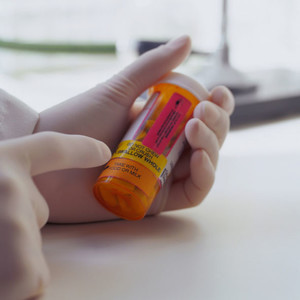Healthcare systems in the Middle East & North Africa (MENA) region face challenges in service funding and delivery with policy emphasis in the region currently focused on controlling pharmaceutical expenditure. A key component of pharmaceutical cost-containment is a strong policy for generics aiming to improve uptake and access.
In this context, a study by researchers from the London School of Economics and Political Science [1] examined and critically appraised the key features of policies on generics in eleven MENA countries (Algeria, Bahrain, Egypt, Jordan, Kuwait, Lebanon, Morocco, Oman, Qatar, Saudi Arabia and United Arab Emirates). The aim of the study was to understand the strengths and weaknesses of existing policies and outline gaps that can be addressed in the future. The analysis covered both the supply- and the demand-side, focusing on pricing, reimbursement and procurement policies (supply-side) and generic prescribing, dispensing and substitution (demand-side). Both primary and secondary data was collected for these aspects of pharmaceutical policy across all eleven countries.
The results indicated that price capping with and without managed competition and external price referencing are the principal pricing policies for generics in the region. Price capping mechanisms are often coupled with reductions in originator prices post-patent expiry. Six of the MENA countries have set percentage decreases for off-patent originator prices at this stage, though no evidence of such practice was identified for the remaining countries. While this is done to reduce spending on pharmaceuticals, it continues to promote the off-patent originator by making it cheaper, especially to patients who pay out-of-pocket. Reimbursement and procurement of generics in the region rely principally on tendering. However, tendering may prove complex as many countries in the MENA region have fragmented reimbursement systems with multiple actors involved in the purchasing of pharmaceuticals, delivery of healthcare and reimbursement.
There are considerable opportunities for the study countries to tailor their generics policies more closely to their individual health system needs to improve efficiency and cost-effectiveness. While significant scope remains for both pricing and reimbursement policies in countries across the region to benefit from some refinement, it is crucial to note the MENA countries focus efforts predominantly on supply-side policies to contain cost. Demand-side policies, such as generic drug prescribing and substitution policies, are rarely in place, and where they are, often not mandatory. Therefore, while generics may be available in these markets, the lack of strong demand-side policies limits the subsequent ability of healthcare systems to ensure sufficient uptake of available generics. Any weakness arising from this issue is exacerbated by the region’s inherent mistrust in generics. Because of this, supply-side policies alone may be insufficient to achieve the efficiency and cost-effectiveness objectives seen across the healthcare systems in the region.
More focus should be placed on introducing effective demand-side legislation, policies or other measures to improve use of generics among physicians, pharmacists and patients, and improving public awareness around generics, including issues surrounding the quality of generics. Placing emphasis on demand-side action, which works in conjunction with improvements in supply-side policies, could create a more holistic approach to improving access to, and uptake of, generics and to pharmaceutical cost-containment more widely.
Conflict of interest
The authors of the research paper [1] declared that this research is in part based on a wider study, ‘Pharmaceutical pricing and reimbursement in the Middle East and North Africa region: a mapping of the current landscape and options for the future’, conducted by the authors. This wider study was funded by the Pharmaceutical Research and Manufacturers of America. The sponsor was not involved in the study design; collection, analysis and interpretation of data; or writing of the report and publication of the study results.
Abstracted by Bregtje W Kamphuis, Department of Health Policy, Medical Technology Research Group – LSE Health, London School of Economics and Political Science, UK.
Editor’s comment
Readers interested to learn more about policies for generics are invited to visit www.gabi-journal.net to view the following manuscript published in GaBI Journal:
Analysis of European policy towards generic medicines
GaBI Journal is indexed in Embase, Scopus, Emerging Sources Citation Index and more.
Readers interested in contributing a research or perspective paper to GaBI Journal – an independent, peer reviewed academic journal – please send us your submission here.
GaBI Journal Citation Impact
1.9 – CiteScore 2020 (calculated on 5 May 2021)
2.0 – CiteScoreTracker 2021 (Last updated on 4 September 2021)
Submit a manuscript to GaBI Journal
Related article
International supply side policies for biosimilars
| LATIN AMERICAN FORUM The brand-new section the ‘Latin American Forum’ on GaBI has been launched. The objective of this new section is to provide you with all the latest news and updates on developments of generic and biosimilar medicines in Latin America in Spanish. View this week’s headline article: Requisitos de certificación de BPF en Argentina, Brasil y México Browse the news in the Latin American Forum! Register to receive the GaBI Latin American Forum newsletter. Inform colleagues and friends of this new initiative. LATIN AMERICAN FORUM Se ha lanzado la nueva sección del ‘Foro Latinoamericano’ sobre GaBI. El objetivo de esta nueva sección es brindarle las últimas noticias y actualizaciones sobre desarrollos de medicamentos genéricos y biosimilares en América Latina en español. Vea el artículo principal de esta semana: Requisitos de certificación de BPF en Argentina, Brasil y México Explore las noticias en el Foro Latinoamericano! Regístrese para recibir el boletín informativo GaBI Latin American Forum. Informe a colegas y amigos sobre esta nueva iniciativa.
|
Reference
1. Kamphuis BW, Kanavos P. Assessing pricing and reimbursement policies for generic pharmaceuticals in the MENA region for improved efficiency, affordability and generic penetration. Health Policy OPEN. 2021;2:100045.
Permission granted to reproduce for personal and non-commercial use only. All other reproduction, copy or reprinting of all or part of any ‘Content’ found on this website is strictly prohibited without the prior consent of the publisher. Contact the publisher to obtain permission before redistributing.
Copyright – Unless otherwise stated all contents of this website are © 2021 Pro Pharma Communications International. All Rights Reserved.








 0
0











Post your comment